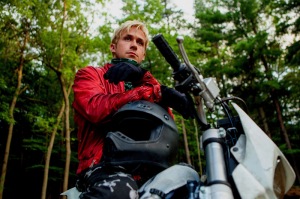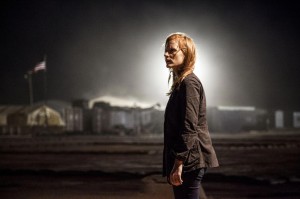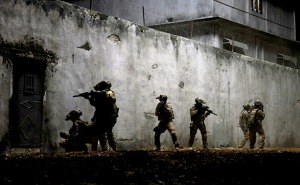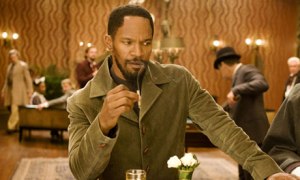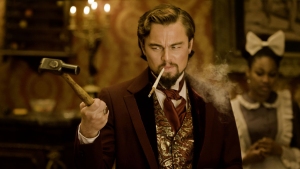2013, 140 mins, US, Cert. 15, Dir: Derek Cianfrance
“If you ride like lightning…” warns a greasy Ben Mendelsohn to Ryan Gosling’s dissolute stunt-biker, “…you’re gonna crash like thunder.” It’s the type of line that would seem laughably trite in any other film; in the context of director Derek Cianfrance’s delicate high-wire balancing act between baroque crime epic and intimate character drama, it makes perfect sense. The Place Beyond the Pines is the 140 minute visual equivalent of a Bruce Springsteen song, with all the delicate scope, darkness and desperation of The Boss’s best. Impressive but flawed on viewing and rather brilliant in retrospect, it is an attempt to marry the brutal realism and ragged edges of Cianfrance’s Blue Valentine to a Dostoevskian tale of crime and consequence.
The plot centres around two men, both new fathers and both with severe daddy issues of their own. Ryan Gosling’s Luke is a short tempered wanderer who turns to crime to support the child he never knew he had, while Bradley Cooper’s idealistic cop Avery Cross struggles against police corruption, his father’s disapproval and a scenery chewing Ray Liotta. Gosling and Cooper give the best performances of their careers so far. Gosling ups his already fearsomely impressive game with a slowly shifting performance that demands constant re-evaluation of his character, but it’s Cooper who’s the real surprise. He graduates effortlessly from bland pretty boy to complex leading man and made me regret all the jokes I’ve made at his expense.
 Both men’s stories spin around the same centre, only intersecting once before culminating in a coincidence so monumental it can probably be seen from space. Instead the twin plots spiral away and spread out, weaving and meandering and leaving a sense of time passing and of guilt and blame trickling down through the generations. It all leads to a divisive final act that will feel like the culmination of a tragedy of Greek proportions to some, and a forceful whack over the head to others. I was left admiring its sheer ambition while lamenting the loss of its more elliptical, mysterious qualities.
Both men’s stories spin around the same centre, only intersecting once before culminating in a coincidence so monumental it can probably be seen from space. Instead the twin plots spiral away and spread out, weaving and meandering and leaving a sense of time passing and of guilt and blame trickling down through the generations. It all leads to a divisive final act that will feel like the culmination of a tragedy of Greek proportions to some, and a forceful whack over the head to others. I was left admiring its sheer ambition while lamenting the loss of its more elliptical, mysterious qualities.
It’s hard to think of a recent film more steeped in the cinema of the 1970s, from it’s Altman-esque scope to the themes of inter-generational sin and redemption that it shares with The Godfather. It is a throwback to a bygone era of great American filmmaking, the likes of which are generally thought to not exist anymore. Although Cianfrance could have learned from those film’s willingness to go over the 150 minute mark to flesh out some underdeveloped points, it’s easy to forgive its missteps when it has moments of such aching beauty and sadness. Cianfrance is making his bid for the big league; when he stumbles it’s because he’s reaching so high and so far.

